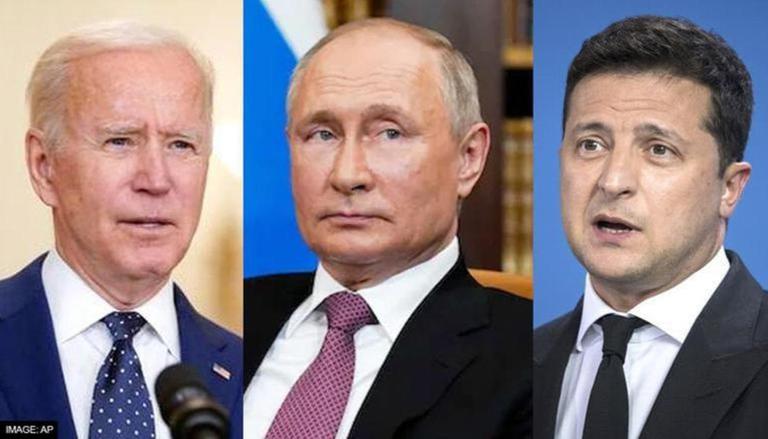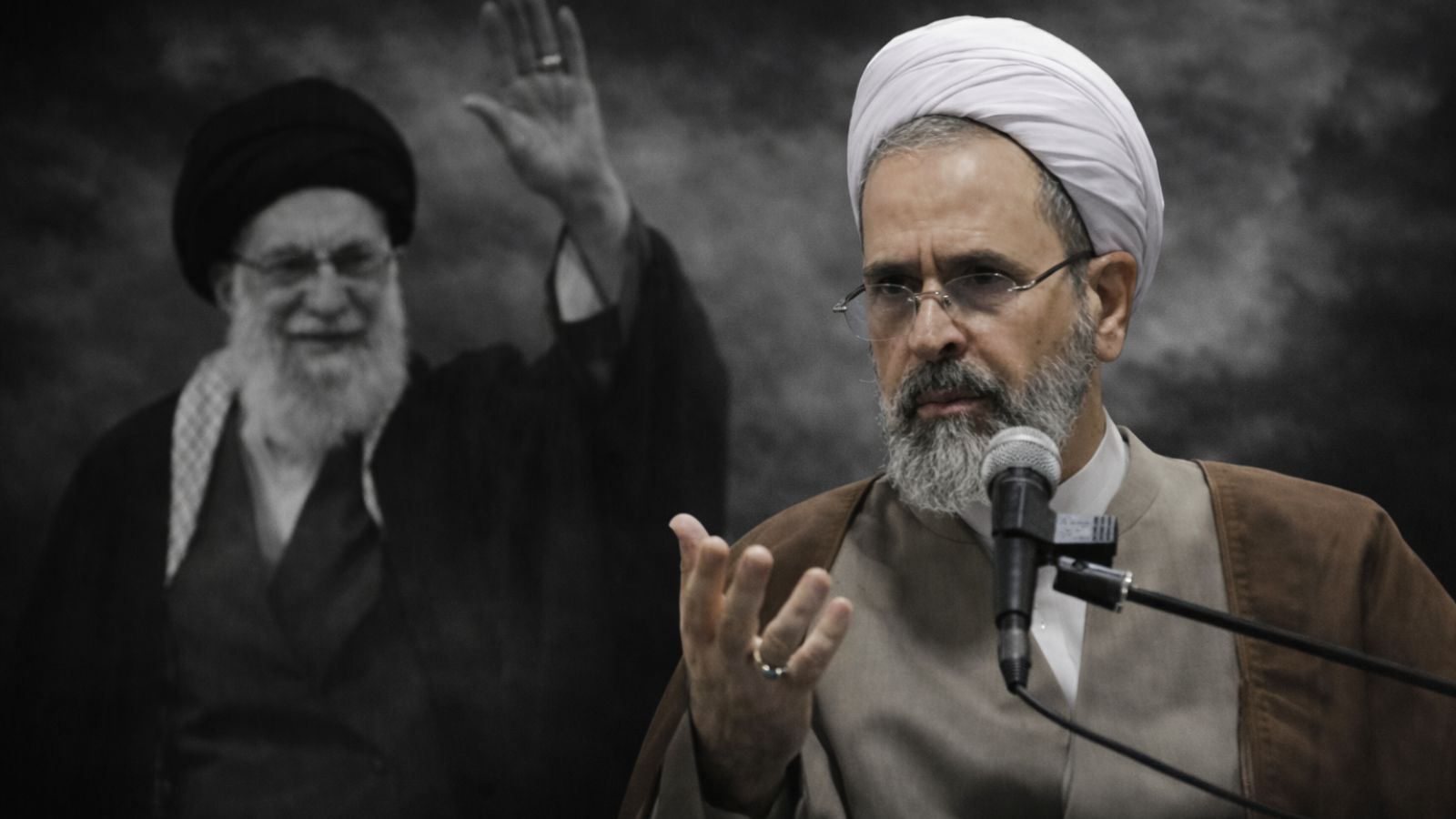What Does Putin Really Want In Ukraine? (Analysis)
What has set the stage for the conflict?
Ukraine was a cornerstone of the Soviet Union until it voted overwhelmingly for independence in a democratic referendum in 1991, a milestone that turned out to be a death knell for the failing superpower.
After the collapse of the Soviet Union, NATO pushed eastward, bringing into the fold most of the Eastern European nations that had been in the Communist orbit. In 2004, NATO added the former Soviet Baltic republics Estonia, Latvia and Lithuania. Four years later, it declared its intention to offer membership to Ukraine some day in the distant future — crossing a red line for Russia.
Putin sees NATO’s expansion as an existential threat, and the prospect of Ukraine joining the Western military alliance a “hostile act” — a view he invoked in a televised speech on Thursday, saying that Ukraine’s aspiration to join the military alliance was a dire threat to Russia.
In interviews and speeches, Putin has previously emphasized his view that Ukraine is part of Russia, culturally, linguistically and politically. While some of the mostly Russian-speaking population in Ukraine’s east feel the same, a more nationalist, Ukrainian-speaking population in the west has historically supported greater integration with Europe.
What does Putin want?
In a lengthy essay penned in July 2021, Putin referred to Russians and Ukrainians as “one people,” and suggested the West had corrupted Ukraine and yanked it out of Russia’s orbit through a “forced change of identity.”
That type of historical revisionism was on full display in Putin’s emotional and grievance-packed address to the nation on Monday announcing his decision to recognize the Donetsk and Luhansk People’s Republics, while casting doubt on Ukraine’s own sovereignty.
But Ukrainians, who in the last three decades have sought to align more closely with Western institutions like the European Union and NATO, have pushed back against the notion that they are little more than the West’s “puppet.”
In fact, Putin’s efforts to bring Ukraine back into Russia’s sphere have been met with a backlash, with several recent polls showing that a majority of Ukrainians now favor membership of the US-led transatlantic military alliance.
In December, Putin presented the US and NATO with a list of security demands. Chief among them was a guarantee that Ukraine will never enter NATO and that the alliance rolls back its military footprint in Eastern and Central Europe — proposals that the US and its allies have repeatedly said are non-starters.
Putin indicated he was not interested in lengthy negotiations on the topic. “It is you who must give us guarantees, and you must do it immediately, right now,” he said at his annual news conference late last year. “Are we deploying missiles near the US border? No, we are not. It is the United States that has come to our home with its missiles and is already standing at our doorstep.”
High-level talks between the West and Russia wrapped in January without any breakthroughs. The standoff left Europe’s leaders to engage in a frenzy of shuttle diplomacy, exploring whether a negotiating channel established between France, Germany, Russia and Ukraine to resolve the conflict in Ukraine’s east — known as the Normandy Format talks — could provide an avenue for calming the current crisis.
In a news conference with the new German Chancellor Olaf Scholz on February 16, Putin repeated unsubstantiated claims that Ukraine is carrying out a “genocide” against Russian speakers in the Donbas region and called for the conflict to be resolved through the Minsk peace progress — echoing similar rhetoric that was used as a pretext for annexing Crimea.
But less than a week later, after Russia’s upper house of parliament approved the deployment of military forces outside the country on February 22, Putin told reporters that the Minsk agreements “no longer exist,” adding: “What is there to implement if we have recognized these two entities?”
The agreements, known as Minsk 1 and Minsk 2 — which were hammered out in the Belarusian capital in a bid to end a bloody in eastern Ukraine — have never been fully implemented, with key issues remaining unresolved.
Moscow and Kyiv have long been at odds over key elements of the peace deal, the second of which was inked in 2015 and lays out a plan for reintegrating the two breakaway republics into Ukraine. Ukrainian President Volodymyr Zelensky recently stated that he did not like a single point of the Minsk accords, which require dialogue on local elections in the Russian-backed separatist regions and — although unclear in what sequence — would also restore the Ukrainian government’s control over its eastern borders. Critics say the agreement could give Moscow undue sway over Ukrainian politics.
Putin previously responded in blunt terms by saying that regardless of whether Zelensky likes the plan, it must be implemented. “Like it or don’t like it, it’s your duty, my beauty,” Putin said in a news conference alongside French President Emmanuel Macron. Zelensky, a former comedian and TV star, won a 2019 election in a landslide on promises to end the war in Donbas, but little has changed. Responding to a question about Putin’s stark, undiplomatic language, Zelensky responded in Russian, saying bluntly: “We are not his.”
What is Ukraine’s view?
President Zelensky previously downplayed the danger of all-out war with Russia, noting that the threat has existed for years and that Ukraine is prepared for military aggression. But on Thursday, as Russia launched an assault on his country, Zelensky made an emotional address directly to the Ukrainian people, declaring martial law in the country.
“Russia began an attack on Ukraine today. Putin began war against Ukraine, against the entire democratic world. He wants to destroy my country, our country, everything we’ve been building, everything we are living for,” Zelensky said in a video message posted on his official Facebook page.
In Kyiv, where Ukrainians had continued to go about their daily business while Russian troops sat at their borders, the streets were empty on Thursday. Across the country, residents have been preparing for the worst — packing emergency evacuation kits and taking time out of their weekends to train as reservists.
Ukraine’s government insists that Moscow cannot prevent Kyiv from building closer ties with NATO, or otherwise interfere in its domestic or foreign politics. “Russia cannot stop Ukraine from getting closer with NATO and has no right to have any say in relevant discussions,” the Foreign Ministry said in a statement to CNN.
Tensions between the two countries have been exacerbated by a deepening Ukrainian energy crisis that Kyiv believes Moscow has purposefully provoked. Ukraine views the controversial Nord Stream 2 pipeline — connecting Russian gas supplies directly to Germany — as a threat to its own security.
Nord Stream 2 is one of two pipelines that Russia has laid underwater in the Baltic Sea — in addition to its traditional land-based pipeline network that runs through eastern Europe, including Ukraine. Kyiv views the pipelines across Ukraine as an element of protection against invasion by Russia, since any military action could potentially disrupt the vital flow of gas to Europe.
After requests from Zelensky and the US administration, German Chancellor Olaf Scholz said on Tuesday that he would halt the certification of the pipeline following Putin’s decision to order troops into parts of eastern Ukraine.
Nord Stream 2 is just one of myriad challenges facing Zelensky’s government. The former actor, who played a president on Ukrainian television, has had a brutal baptism of fire into real-world politics since assuming office in 2019.
His government’s popularity has stagnated amid multiple domestic political challenges, including a recent third wave of Covid-19 infections and a struggling economy. Many Ukrainians are unhappy that the government has not delivered on the promises that brought it into power, including cracking down on corruption in the country’s judicial system. But the more pressing concern is Zelensky’s failure so far to bring peace to the country.













